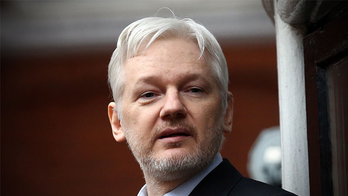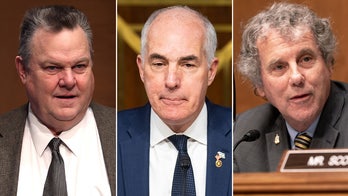Fox is continuing to ask the White House about how people who never requested communication received e-mails on health care and other topics. So far, it's slow-going. But not for lack of effort.
As you can see, this blog is now drowning in comments on this topic. The Fox staff is plowing through the comments and is trying to approve them as rapidly as possible. The network apologies, through me and this post, for delays in posting comments.
The network and this correspondent have in the past 30 hours received hundreds of e-mails from people who say they have received -- via their personal and private e-mail account - White House communication(s) they never sought.
Some who have e-mailed me or the network insist they never used an opt-in or subscribe function on the White House web site, the typical means by which any White House would be expected to obtain a private e-mail account information.
Others says they have visited the White House website to watch a streaming video or to send comments on topics such as health care and the so-called "Beer Summit." In many, but not all instances, these e-mailers say all they tried to do was leave a comment or seek an answer to a specific question - not to become a member of a general White House e-mail distribution list.
A third category of e-mailers say all they have contacted their members of Congress or U.S. Senators on legislative topics -- health care and others. These e-mailers say they never used the White House website for anything and wonder if lawmakers passed along their e-mail information to the White House.
E-mailers in all three categories are mystified. Also, in every instance so far, e-mailers insist the e-mail(s) they received from the White House was/were not forwarded. They are positive the e-mails arrived directly from the White House.
Fox cannot independently verify all of these accounts. Fox can only represent what hundreds of e-mailers have represented to me or to the network.
But in some instances, e-mailers have volunteered to give up the e-mails they've received to White House officials if it mean obtaining an explanation about how they came to land on the Obama distribution list.
White House Press Secretary Robert Gibbs on Thursday established what sounded like the standard by which any inquiry into this matter could be conducted. This is Gibbs address me during Thursday's briefing:
"I'd be interested to see who you got that e-mail from and whether or not they're on the list," Gibbs said. "You're asking me if they're on a list and if you can figure out a different way of checking without asking me to double-check the names, I am happy to."
At the time of the briefing, I did not possess permission from any e-mailer to provide their address to the White House. Fox has that permission from many e-mailers now.
I have made it clear to Gibbs - through repeated e-mail correspondence - that the e-mails are his to review for a reasonable period of time to determine how they landed on the White House "list" he himself first referenced. Gibbs has declined to respond.
In a related development, Fox on Friday filed a Freedom of Information request to obtain the full e-mail distribution list for the Axelrod health care e-mail and all internal White House e-mails about the list's creation.
In general, the White House has said private e-mails in its possession are being housed strictly for legal, legitimate archive purposes. There is absolutely no evidence to suggest otherwise.
But among the questions on the minds of many e-mailers is how they could receive direct communication from the White House they never sought.
"If the White House got those email addresses the same way that anybody else gets e-mail addresses, or through some other lawful methods then I'm not terribly troubled by it," said Chris Hansen of the American Civil Liberties Union. "If, however, the White House got those e-mail addresses because people were sending in notes saying 'My uncle Bob is opposed to your health care plan you probalby should write to him,' I think that presents serious concerns."
Fox interviewed two e-mailers who contacted the network to complain about receiving the Axelrod e-mail. One was Lou Porta from St. George, Utah. The other was Jack Benjamin from Nashville, Tenn.
Porta said he's never accessed the White House website, never sent an e-mail to his member of Congress, and never used his e-mail address to discuss the health care debate with anyone.
"I don't want my name on some list," Porta said. "You know, my wife and I really want our privacy. I don't want to be on any list where I may be getting further e-mails from other groups. That's the main thing. We don't want to be on a White House list. We're not Democrats, we're conservative Republicans."
Benjamin, who also described himself as a Republican, said he received the Axelrod health care e-mail as a pop-up ad while he was reading a blog. He said the pop-up must have been approved by his internet service provider, AOL.
"The White House wants to put out a message so they have a conduit to put the message out to people who haven't contacted them in any way," Benjamin said. "Therefore, they're using AOL the same way that a spammer would be. I'm not particularly interested in hearing from David Axelrod."




